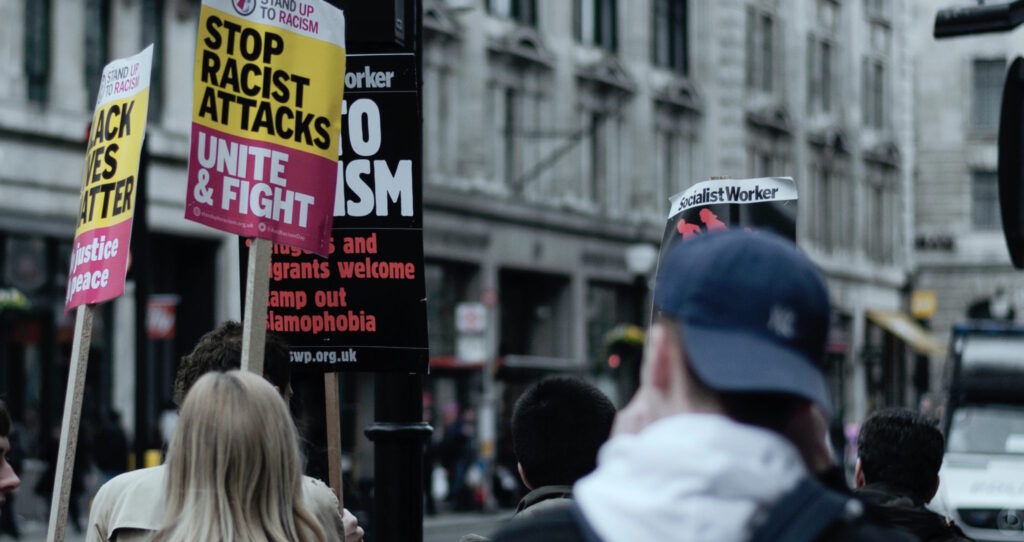Prejudice against immigrants from Asian countries is a significant concern in Canada. It is an issue that affects not only the individuals who experience it but also the broader community. Discrimination and prejudice can manifest in various ways, such as racial slurs, exclusion, stereotyping, and hate crimes.
Forms of Racism and Prejudice
One of the primary forms of prejudice that Asian immigrants face in Canada is racism based on their physical appearance or ethnicity. Asians in Canada are often stereotyped as being “model minorities” who are hardworking and successful, but also passive and quiet. These stereotypes can lead to discrimination in the workplace, housing, education, and healthcare.
Another form of prejudice that Asian immigrants face is religious discrimination. Many immigrants from Asian countries are followers of religions such as Buddhism, Hinduism, Islam, and Sikhism. Discrimination based on religious beliefs can manifest in various ways, such as discrimination in the workplace or the community, exclusion, and harassment.
Canada has been widely recognized as a welcoming and inclusive society, but racial discrimination still exists.
Fortunately, there are various remedies available to immigrants in Canada who face discrimination based on their color or religion.
Legal Remedies
The most direct and effective way to seek redress for racial discrimination is through the legal system. Canada’s legal system provides several avenues for immigrants to seek legal remedies against racial discrimination. Some of the legal remedies available to immigrants in Canada include:
Human Rights Tribunal:
Every province and territory in Canada has a human rights commission or tribunal that is responsible for enforcing human rights laws. These commissions and tribunals are independent bodies that hear and decide on human rights complaints. Immigrants can file a complaint with the human rights commission or tribunal in their province or territory if they believe that they have been discriminated against based on their color or religion.
Criminal Code:
Canada’s Criminal Code makes it illegal to promote hatred or advocate genocide against an identifiable group based on their color or religion. Immigrants who face racial discrimination in the form of hate speech or other forms of hate crimes can report it to the police. The police will investigate the complaint and, if necessary, lay charges under the Criminal Code.
Employment Standards:
Immigrants who experience discrimination in the workplace can file a complaint with the relevant employment standards agency in their province or territory. The agency will investigate the complaint and, if necessary, take legal action against the employer.
Civil Lawsuit:
Immigrants who have experienced discrimination can file a civil lawsuit against the person or entity responsible for the discrimination. In a civil lawsuit, the immigrant can seek damages for the harm caused by the discrimination.
Non-Legal Remedies
There are several non-legal remedies available to immigrants in Canada who experience racial discrimination. These remedies may not result in legal action, but they can help to address the discrimination and raise awareness of the issue. Some of the non-legal remedies include:
Reporting to Employer:
Immigrants who face discrimination in the workplace can report the discrimination to their employer. The employer has a duty to investigate the complaint and take appropriate action to address the discrimination.
Reporting to Human Rights Organizations:
Immigrants can report cases of racial discrimination to human rights organizations in their community. These organizations can help to raise awareness of the issue and provide support to those who have experienced discrimination.
Public Awareness Campaigns:
Immigrants can participate in public awareness campaigns to raise awareness of the issue of racial discrimination. These campaigns can include social media posts, public demonstrations, and other forms of advocacy.
Counseling and Support Services:
Immigrants who have experienced discrimination can seek counseling and support services from organizations that specialize in helping victims of racial discrimination. These services can help immigrants to deal with the emotional impact of discrimination and provide them with resources to address the discrimination.
Immigrants in Canada should be aware of these remedies and use them to seek redress for any discrimination they may face.
Other Factors that affect Immigrants:
Language barriers also present a significant challenge for Asian immigrants in Canada. Many immigrants come to Canada with limited English proficiency, making it challenging to communicate effectively with the broader community. This language barrier can lead to exclusion, discrimination, and limited access to healthcare and other essential services.
The COVID-19 pandemic has also exacerbated the prejudice and discrimination faced by Asian immigrants. The virus first emerged in China, and since then, many Asian Canadians have faced harassment, racist remarks, and even physical attacks. Such acts can lead to psychological distress and negatively impact the well-being of Asian Canadians.
The Canadian government has taken steps to address prejudice and discrimination against immigrants, including those from Asian countries. For instance, it has implemented policies and programs that promote diversity and inclusion, such as the Multiculturalism Act, the Canadian Charter of Rights and Freedoms, and the Employment Equity Act. These policies aim to protect the rights of all Canadians, regardless of their ethnicity, religion, or national origin.
Various organizations also work to combat prejudice and discrimination against immigrants, including those from Asian countries. These organizations provide support to individuals facing discrimination, raise awareness about the issue, and advocate for policy changes to promote diversity and inclusion.
While prejudice against immigrants from Asian countries is a complex issue that affects individuals, communities, and the broader society. It manifests in various forms, such as racism, religious discrimination, language barriers, and exclusion. While the Canadian government and various organizations are taking steps to address and combat prejudice and discrimination, ongoing efforts are needed to ensure that all Canadians, regardless of their ethnicity or background, can live and work in a safe, inclusive, and welcoming environment.

